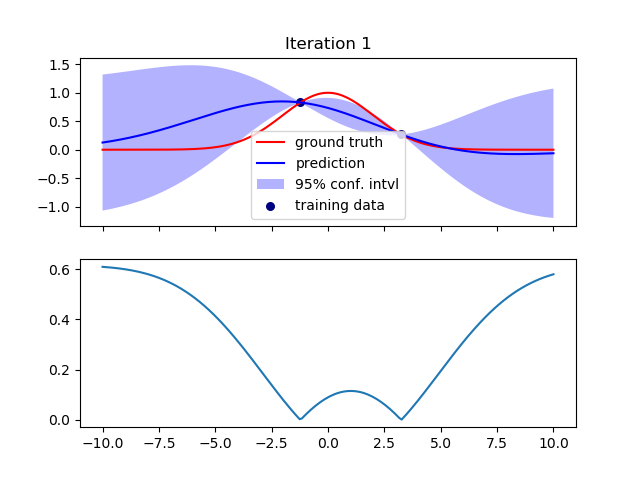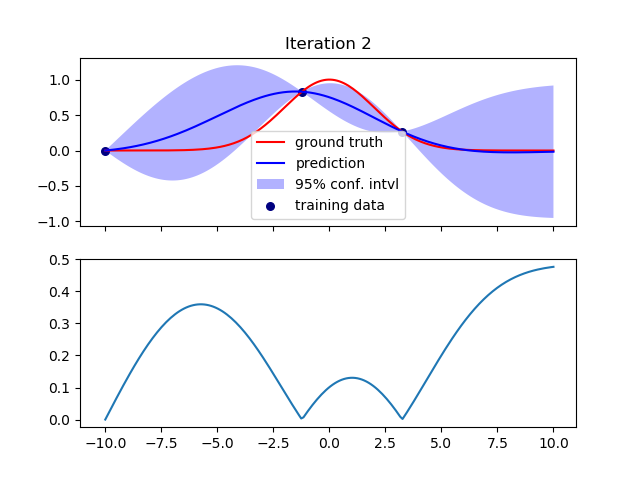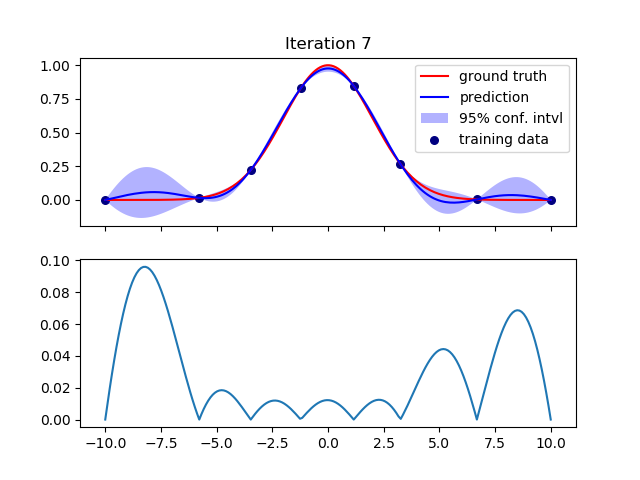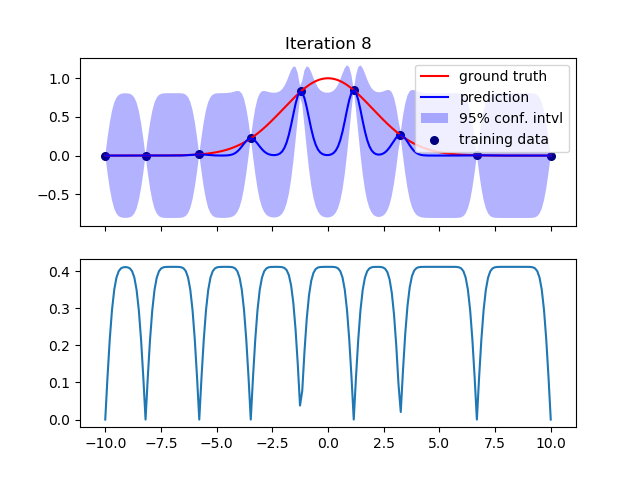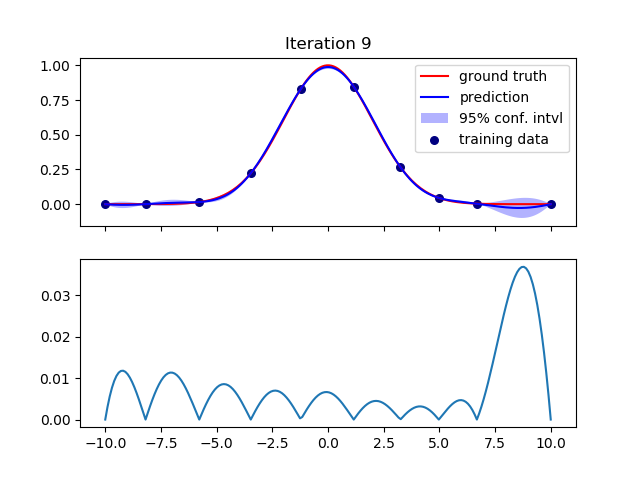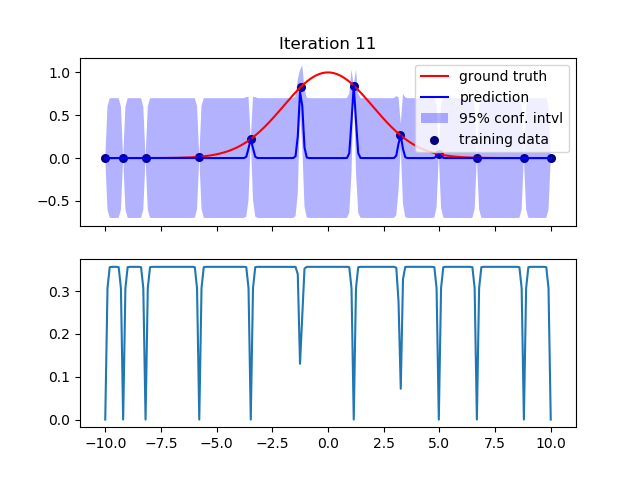I am trying to do a variance-based uncertainty sampling like in the book "Active Learning" by Burr Settles, page 18, Figure 2.6. Link to the book: http://active-learning.net/
I use Gaussian process regressor from scikit-learn to fit a 1-D Gaussian function. The parameters of the regressor are the same as in this example (a noise-free case) http://scikit-learn.org/stable/auto_examples/gaussian_process/plot_gpr_noisy_targets.html
kernel = C(1.0, (1e-3, 1e3)) * RBF(10, (1e-2, 1e2))
gp = GaussianProcessRegressor(kernel=kernel, n_restarts_optimizer=9)
Initially, I randomly choose two training data points and fit the curve based on them. The Figure below shows the fit (top) and the variance (bottom)
Then I add one more training data point taken at the place where the variance is the largest, and re-fit the data.
I repeat this process for a few iterations and the interpolation improves with each iteration, as expected. For example, this is the iteration 7:
However, at the next iteration, the interpolation is worse. The variance suddenly increases:
The next few iterations are fine again. For example, iteration 9:
But at the iteration 11 I get a large variance again:
Iterations 12 through 15 show very small variance again - the curve is interpolated very well at those iterations. I stopped at 15.
Why does this sudden increase of variance happen at certain steps? How to avoid it?
When I change the parameter n_restarts_optimizer, this behavior is still observed but at different iteration steps. For example, when n_restarts_optimizer=8, the increase in variance is at iteration 9. When n_restarts_optimizer=7, the increase in variance is at iteration 4, 10, 11. When n_restarts_optimizer=4, the increase in variance is at iteration 7, 14.
When I change the parameter length_scale in the RBF kernel from 10 to 1.0 I don't see this increase in variance anymore. However, when I make it even smaller (length_scale = 0.1) it appears again.

